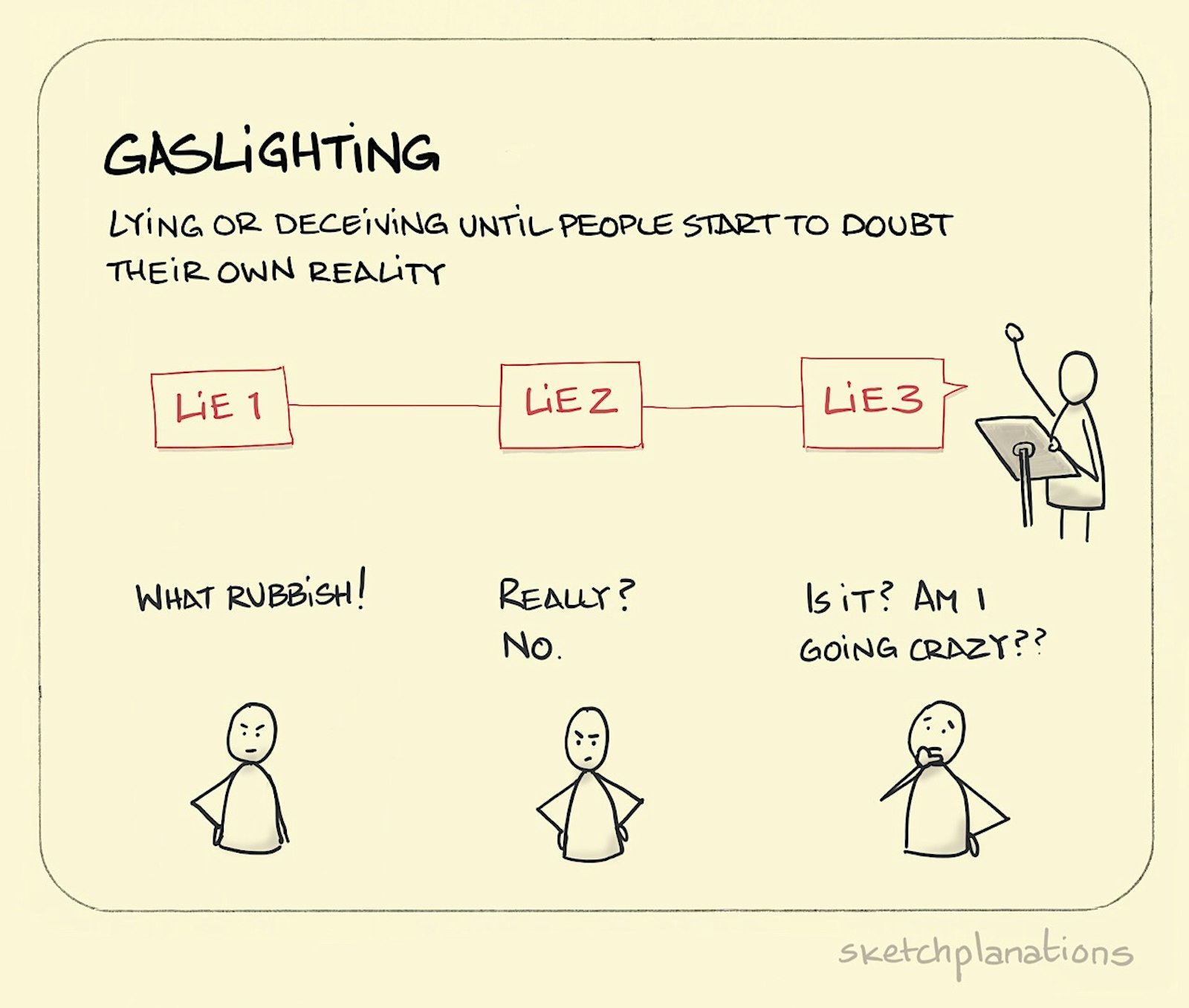
The Abilene paradox
The Abiliene paradox is the paradox of how groups of people can take actions that no one in the group actually thinks is a good idea.
Though individually, we each may think that an idea is a bad one, we may go along with the group decision thinking that it’s just us that disagree when, in fact, no one thinks it’s a good idea.
It was coined by Jerry Harvey, a management professor, who illustrated the phenomenon with a fictional story of a family who ended up on a rubbish day out to Abilene that no one wanted to do.
On a hot afternoon visiting in Coleman, Texas, the family is comfortably playing dominoes on a porch until the father-in-law suggests that they take a trip to Abilene (53 miles north) for dinner. The wife says, “Sounds like a great idea.” The husband, despite having reservations because the drive is long and hot, thinks that his preferences must be out-of-step with the group and says, “Sounds good to me. I just hope your mother wants to go.” The mother-in-law then says, “Of course I want to go. I haven’t been to Abilene in a long time.”
The drive is hot, dusty, and long. When they arrive at the cafeteria, the food is as bad as the drive. They arrive back home four hours later, exhausted.
One of them dishonestly says, “It was a great trip, wasn’t it?” The mother-in-law says that, actually, she would rather have stayed home but went along since the other three were so enthusiastic. The husband says, “I wasn’t delighted to be doing what we were doing. I only went to satisfy the rest of you.” The wife says, “I just went along to keep you happy. I would have had to be crazy to want to go out in the heat like that.” The father-in-law then says that he only suggested it because he thought the others might be bored.
The group sits back, perplexed that they decided to take a trip that none of them wanted. They each would have preferred to sit comfortably but did not admit to it when they still had time to enjoy the afternoon.
More paradoxes:
Also see:
Harvey, J. B. (1974). “The Abilene paradox: the management of agreement”. Organizational Dynamics. 3: 63–80. Excerpt as quoted from Wikipedia :)
This is not to diss Abilene. I’m sure it’s a neat place.


